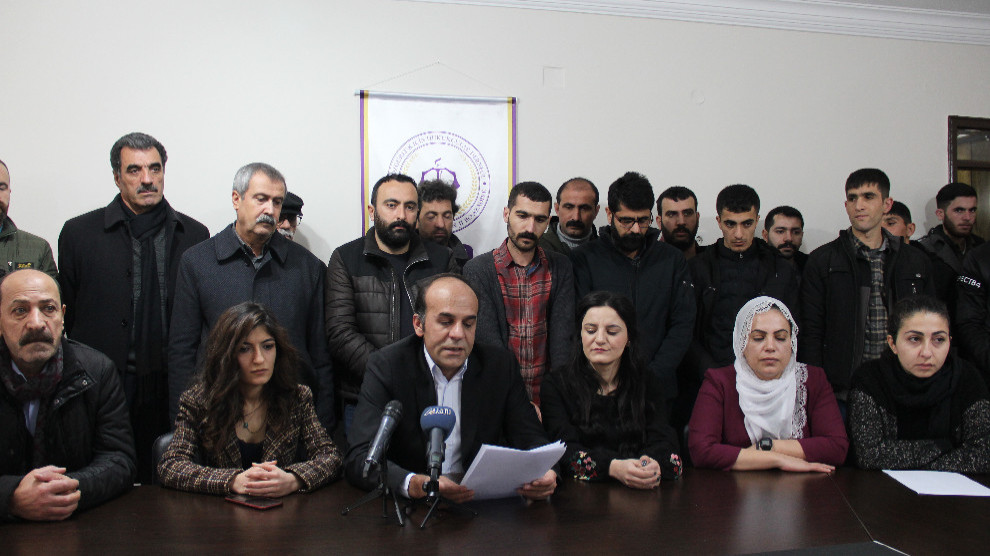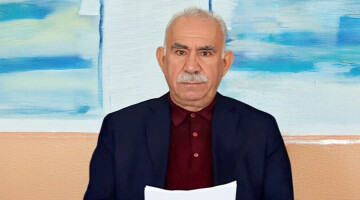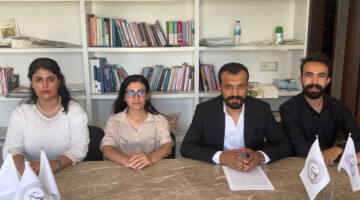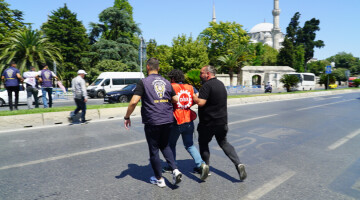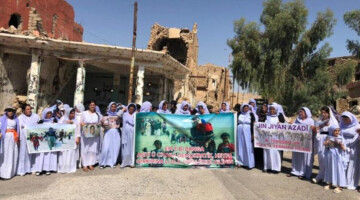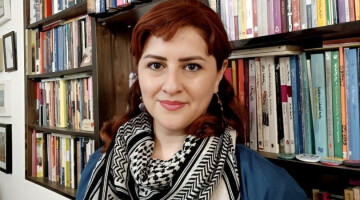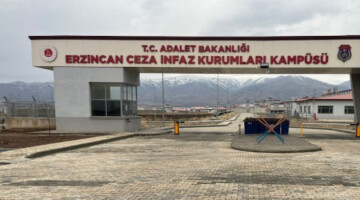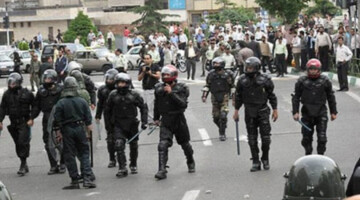Abdullah Öcalan was extradited from Kenya to Turkey in 1999 in violation of international law and has since been held in the high-security prison on the Imrali Island in solitary confinement. He has not spoken to his team of lawyers since 7 August 2019. His brother Mehmet Öcalan was granted access to the PKK founder for the last time on 12 August. Any request for visit after that date was either refused or not answered. Öcalan is again being subjected to strict and complete isolation.
On this occasion, the Association of Lawyers for Freedom (Özgürlük için Hukukçular Derneği, ÖHD) held a press conference in Amed (Diyarbakir) to draw attention to the situation in the island prison in the Sea of Marmara. Participants in the meeting included HDP deputies Remziye Tosun, Musa Farisoğulları, Öcalan's lawyer Mazlum Dinç, the HDP's provincial leadership and youth council, the 78’ers Initiative, the Democratic Congress on Islam and members of the ÖHD.
Lawyer Berdan Acun, who sits on the board of the ÖHD, explained that even 71 years after the Universal Declaration of Human Rights, which Turkey had also agreed to, the most fundamental human rights are still being violated by Turkey on a daily basis. The list of everyday human rights violations in Turkey is headed by violations such as isolation, denial of the right to life, torture, ill-treatment, assimilation of language and culture, feminicide, child abuse, religious oppression and impunity. The most serious violations of rights in detention take place at Imrali. Both the airspace over the island and the sea around the island are closed for miles around. Öcalan and his three fellow prisoners are completely isolated.
Isolation is a system issue
Acun stressed that the situation on Imrali was closely linked to the systemic issue and that alleged "security concerns" were not the main reason behind Öcalan's isolation. "It is about separation, alienation, isolation, punishment and the attempt to force obedience. In this sense it's not a criminal regime but a technique of domination. This technique has nothing to do with law or democracy. Isolation does not only affect the prisoner, it affects above all the families and the whole society. While pressure is built up on the prisoners inside, attempts are made to manipulate the people outside and, in particular, to gain influence over the population," said Acun.
Comparison with Guantanamo
The lawyer recalled that a British court of appeal described the situation of Guantanamo prisoners as "in a legal black hole" and continued: "Since then, Guantanamo has been repeatedly referred to as a 'legal black hole'. Imrali is a black hole just like Guantanamo."
"Öcalan is prevented from exercising his rights"
Acun went on to say that each prisoner's communication with his family, lawyers and the outside world is legally guaranteed. "For years, however, he has been unable to exercise these rights at Imrali Prison. To be able to use these rights is not a concession but an obligation. The law cannot change according to the government, party or person. Therefore everyone is obliged to obey the law. The law applies to everyone. We call on the public to act in order for this illegal practice to stop."

